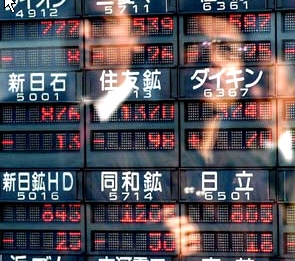London has held on to the top spot in Schroders Global Cities Index for the second year in a row. The UK capital scored highly in a number of areas and was ranked first among its global peers for innovation. It was also boosted by London’s world-class universities and extensive public transport network, which is set to expand this year with the long-awaited opening of the new Elizabeth Line.
The Schroders Global Cities Index looks to identify and rank the best global cities using four metrics; economic, environmental, innovation and transport. The index identifies those cities with a combination of economic dynamism, world-class universities, forward-thinking environmental policies and excellent transport infrastructure.
These factors help to attract highly paid workers and drive economic growth. Universities, in particular, are integral to the future prosperity of a city, as highly qualified graduates earn more money and generate higher tax revenues.
Boston moved up to second place in this year’s Index, switching places with San Francisco, which slipped down to third place. Boston’s ascent in the index recognises the city’s status as a global centre for bio-medical research and innovation, following its contribution to the development of Covid-19 vaccines. Boston was also ranked the top city for its transport infrastructure.
New York advanced one place to take the fourth position in the index, with the Big Apple, the biggest city in the US by population, ranking particularly highly for innovation and transport infrastructure.
Hugo Machin, Portfolio Manager, Schroders Global Cities, commented:
“London continues to score well on all four metrics of the Global Cities Index and the importance of transport and universities cannot be over-stated. London, with the opening of the new Elizabeth line and a long-standing tube, bus and rail network, has a high standard of mass transit compared to other Global Cities. The City also has universities that remain at the forefront of academic research with the London School of Economics (LSE) and Imperial College leading the way in a number of fields.
“Fears of a mass exodus away from cities in the wake of the Covid-19 pandemic, driven by the move to remote working, appear to have been exaggerated. Data now points to a trend of movement away from city centres, but not away from cities entirely.
“The idea of a 60:40 week – three days in an office and two days working remotely from home – has now started to become a reality. And although people are spending less time in the central areas, cities remain important as they are the backbone for businesses and offer vital opportunities for collaboration, which is essential, particularly in the new knowledge economy.”
Risers and fallers
Melbourne, Australia’s second largest city, moved up five places in the index to take the fifth spot. The city scored well for economic dynamism and innovation but lagged some of its peers for its transport infrastructure. Meanwhile, Paris, the only other European city to make the top 10, slipped three places to take the seventh spot.
Hong Kong also saw its ranking in the index slip, with the special administrative region falling to ninth place from a fifth-place ranking in the 2021 index. However, despite falling back slightly, the city continued to rank highly in a number of areas, particularly innovation (where it was ranked third overall) and in its access to transport infrastructure.
Chicago, the third-biggest city in the US, rounded off the top 10, rising 22 places from last year’s index. Fellow US city Philadelphia also climbed the index, jumping 31 places to take 13th place. Dutch city Amsterdam was another strong performer, jumping 26 places to 21st place.
Schroders Global Cities Index 2022
| As of February 2022 | ||||
| City | Country | Region | Score | Rank |
| London | United Kingdom | Europe | 8.85 | 1 |
| Boston | United States | North America | 8.67 | 2 |
| San Francisco | United States | North America | 8.54 | 3 |
| New York | United States | North America | 8.47 | 4 |
| Melbourne | Australia | Oceania | 8.41 | 5 |
| Toronto | Canada | North America | 8.36 | 6 |
| Paris | France | Europe | 8.32 | 7 |
| Singapore | Singapore | Asia | 8.31 | 8 |
| Hong Kong | China | Asia | 8.28 | 9 |
| Chicago | United States | North America | 8.24 | 10 |
| Sydney | Australia | Oceania | 8.23 | 11 |
| San Jose | United States | North America | 8.17 | 12 |
| Philadelphia | United States | North America | 8.10 | 13 |
| Montréal | Canada | North America | 8.10 | 14 |
| Los Angeles | United States | North America | 8.09 | 15 |
| Stockholm | Sweden | Europe | 8.04 | 16 |
| Seattle | United States | North America | 8.01 | 17 |
| Manchester | United Kingdom | Europe | 7.98 | 18 |
| Washington D.C. | United States | North America | 7.97 | 19 |
| Shenzhen | China | Asia | 7.95 | 20 |
| Amsterdam | The Netherlands | Europe | 7.93 | 21 |
| Munich | Germany | Europe | 7.91 | 22 |
| Vancouver | Canada | North America | 7.87 | 23 |
| Copenhagen | Denmark | Europe | 7.84 | 24 |
| Beijing | China | Asia | 7.80 | 25 |
| Madrid | Spain | Europe | 7.80 | 26 |
| Hangzhou | China | Asia | 7.78 | 27 |
| Zurich | Switzerland | Europe | 7.77 | 28 |
| Shanghai | China | Asia | 7.77 | 29 |
| Tokyo | Japan | Asia | 7.75 | 30 |





